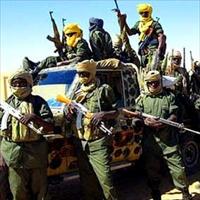CHAD: ICG proposes inclusive path to peace

Unless the Chad government includes rebels in reconciliation talks, the country will continue to face security threats and political crises, says the International Crisis Group (ICG) in its 25 September report.
A permanent ceasefire has eluded the violence-wracked country even after numerous rounds of government-rebel peace negotiations since conflict surged again in December 2005.
The report calls for better distribution of oil money, radical government reform and revived talks between Chad and Sudan to end their support of each other's rebel groups.
ICG describes the August 2007 EU-brokered peace deal as flawed, in that it tried to build democracy through elections without helping to create the necessary conditions for successful elections.
"The Chadian crisis goes way beyond what [the] August 13 [agreement] can achieve," the ICG's deputy director for Africa, Daniela Kroslak told IRIN. "We have to look at…decentralising the state authority, and security sector and judicial reforms – all of which are components without which democracy cannot thrive."
Inclusive approach
More people need to be consulted to create a thus-far elusive democracy, says Judith Enriquez-Sarano with the non-profit Oxfam, based in Abeche in eastern Chad.
"It is essential that all stakeholders are involved in this political process – this includes Islamic groups, clan leaders, women, parties to the armed conflict, and non-governmental organisations," she told IRIN.
While ICG calls for African Union mediation, Enriquez-Sarano says there is no peace without EU backing. "Without this political support, the violence will only continue."
Insecurity spiralling
Over the past year, insecurity has spiralled in eastern Chad, according to NGOs and UN agencies working there. "The security situation in Chad has developed from worrying to lethal in 2006 and has continued at a similar pace during 2007 and 2008," stated a May 2008 UNHCR security briefing note.
Despite the deployment of the UN policing force MINURCAT [UN Mission in the Central African Republic and Chad], and EUFOR [European stabilisation mission] troops in September 2007 and February 2008, respectively, about half a million people are still exposed daily to attacks, theft, rape, and forced recruitment to fight, according to Oxfam.
At risk are the estimated 250,000 refugees and 170,000 internally displaced people who are living in camps along Chad's eastern border.
MINURCAT has trained less than half of the 800 Chadian military police it set out to train; as a military, rather than a police force, EUFOR troops are ill-suited to fight widespread banditry and criminality in the east, says Oxfam.
"Despite these troops, the east remains a largely lawless environment,” says Enriquez-Sarano.
Setting up an enforceable and fair justice system in Chad is critical, according to ICG’s Kroslak, but it will only work if Chad's highest-ranking support it.
"The problem with MINURCAT and EUFOR is that they are a technical approach to a political issue. These are political issues, which require support from President [Idriss] Deby himself."
Kroslak says disgruntled power-grabbers will strike again. "It is in President Deby's interests, given [that] he's survived two coup attempts in the past two years…the rebels will not give up."
Sudan troubles
While the ICG report stresses Chad's problems are internal and not simply a spill-over from neighbouring Sudan, it calls on the UN Security Council, in negotiation with the African Union (AU), to appoint a respected AU mediator to renew peace talks in Chad.
For several years, the governments of Chad and Sudan have been accusing each other of supporting rebels in attacks against one another.
ICG recommends regional actors such as Senegal's President Abdoulaye Wade to guide Chad and Sudan towards peaceful resolution.
President Wade helped negotiate the Dakar accord in August 2006, which aimed to end fighting between the governments of Chad, Sudan and rebel groups on both sides. The deal fell apart, as did another attempt in March 2008.
Since then, attacks in eastern Chad have killed more than 150 people, according to the Chadian military. Though peace deals have not held, Kroslak says Senegal is still a valuable go-between. "Senegal is seen to be an impartial actor that is willing enough to invest [in the process]…this should help move the process forward."
“The two leaders are now stuck in a merry-go-round of affirmation followed by accusations of support for each other’s rebel groups,” Kroslak told IRIN. “This [pattern] will not solve the crisis; it just glosses over the deeper issues. If regional actors do not help leaders find an inclusive solution to the Chad-Sudan crisis soon, then the danger of another attack in eastern Chad – even in N’djamena – is very real.”
 Back and Next - Back and Next
Back and Next - Back and Next See Also - See Also
See Also - See Also